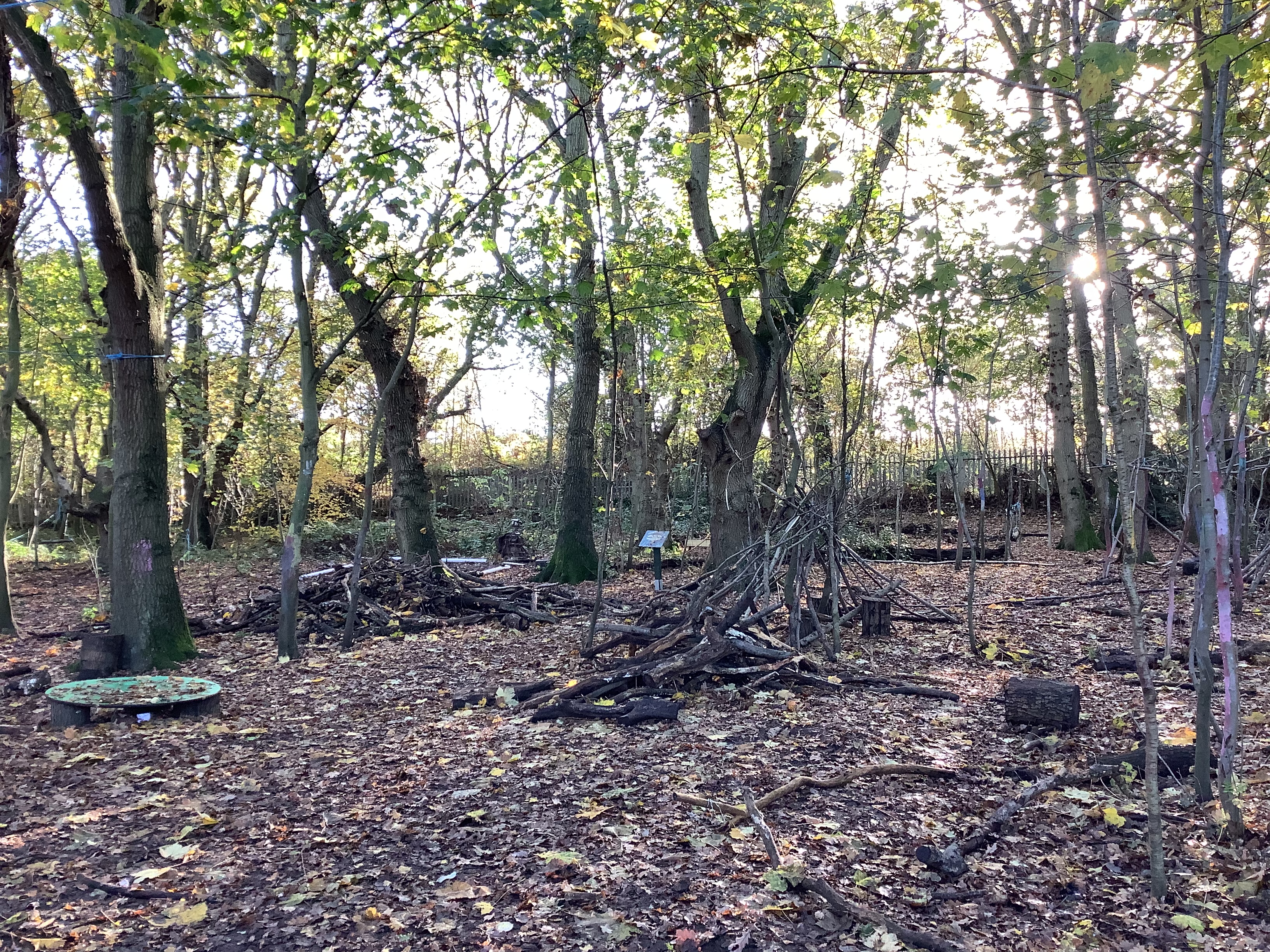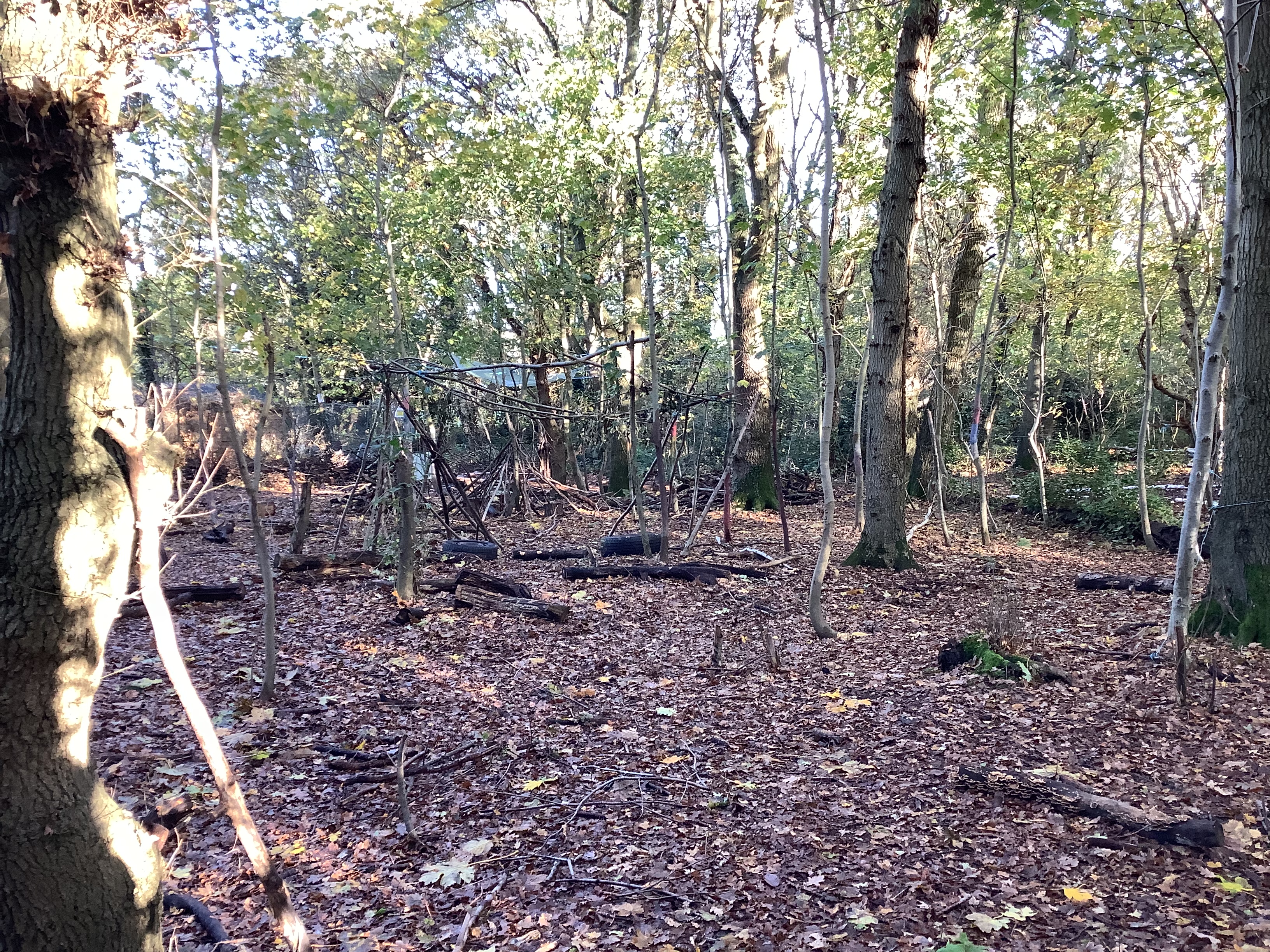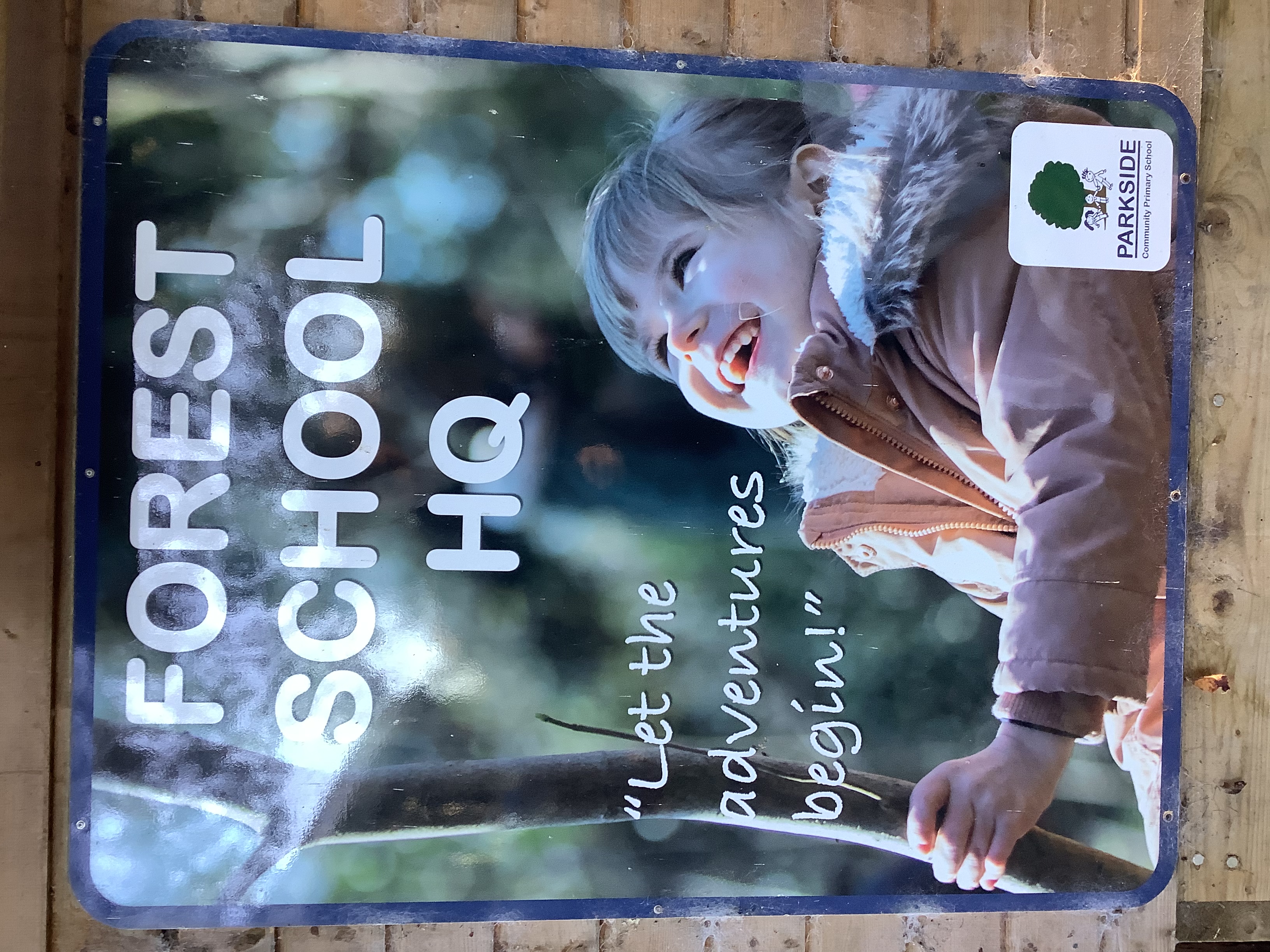
Forest School is a unique educational experience and process that offers children the opportunity to succeed and develop confidence and self-esteem through hands-on learning experiences in a woodland or other natural environment.
The Forest School concept originated in Scandinavia and was originally aimed at pre-school children. It was found that children who had attended forest school seemed to benefit in many ways. They arrived at school with strong social and communication skills, had the ability to work in groups effectively, displayed high self-esteem and generally showed confidence in their own abilities.
At Parkside, Forest School sessions generally take place within the school grounds, occasionally children will be taken on excursions. These excursions will be covered by a risk assessment and will follow the correct adult to child ratio depending on the activity and location.
The main sessions will take place within the school owned forest and Forest School HQ classroom. There are also plenty of other green areas within the school grounds that can be utilised, including a field, hedgerows and planting areas. There is a large pond at the edge of the grounds that can be used for pond dipping etc.
Forest School sessions are currently run by the Level 3 Forest School Practitioner.




Children taking part in Forest School sessions are given an opportunity to participate in activities in a natural setting on a regular basis. The setting provides a safe environment for them to learn and explore. Activities take place throughout the year and generally in all weathers.
Whilst the sessions may provide opportunities to learn and understand more about the natural world, they also provide opportunities to develop their interpersonal skills.
There are opportunities to learn practical skills that there is often little opportunity to learn in formal school settings or even in the home these days. For tasks such as tree climbing, tool use, fire lighting or cooking there might be an element of managed risk. However by giving children these opportunities they ultimately become better equipped to manage risk and as a result have the opportunity to grow their self confidence.
Opportunities for reflection and to share experiences are provided and these help with the social and emotional development of participants. Group size plays an important role in this area, smaller groups allowing, eventually, more in depth reflection to take place and greater social interaction.
The Forest School leader should be seen as a facilitator. Although activities are well planned, they should essentially be child led. There should be flexibility in the planning to allow children to pursue their interests, planning being used to scaffold their interests. In order for this to happen, leaders need to have a good understanding of practical skills and an ability to match or adapt activities to learner’s interests. Most importantly they need to have a good understanding of the site where the sessions take place and the opportunities it can present.
Activities for Forest Schools are diverse and numerous but it should be reminded that we are trying to create independent learners who are inspired to try out their own ideas, explore their own interests and to attempt new ideas.
© Parkside Community Primary School 2018-2026 - All Rights Reserved